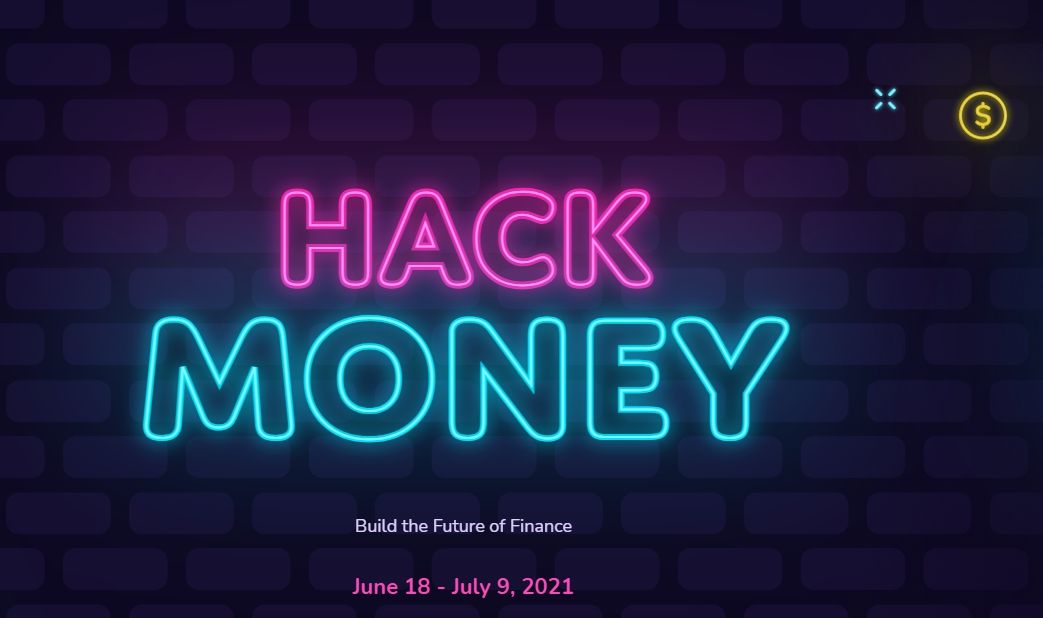Rootkit Finance set to Compete in the ETH Global; Hack Money DeFi Hackathon

Securing a last-minute spot to participate in the 2021 virtual DeFi Hackathon, Hack Money, the Rootkit Finance team will reveal a new token class in the DeFi space as it hopes to live up to its ambitious expectations
Aiming to complete the first lap of the Hackathon token within the allocated timeframe, the Rootkit team believes that their “inventive mindset” will set them apart from all of the other competitors. With an array of implementation paths, this new token class, according to Rootkit, will have a new goal: “aggressive self-replication”.
Although not in their initial roadmap, the advent of this Hackathon has accelerated their development phase. The codebase for this token will benefit their existing“UpTokens”, the most recent projects across different chains to utilize the Rootkit Finance protocol. Their original creation, the $ROOT token on Ethereum, will be the “root of everything”, the team states unequivocally.
The “Root” of It All
While at first glance the project seems to be a retro homage to Windows 95 and “Matrix” nostalgia, $ROOT is basically a yield farming token that utilizes an entirely new protocol, known as ERC-31337, to unlock an array of unparalleled possibilities.
Leveraging Uniswap’s pricing mechanism, a permanently locked liquidity pool, and a fixed supply currency, Rootkit seeks to create a price floor and ensures a base lifetime price. This also allows the protocol to reuse ETH locked up in their system as many times as possible, pioneering a radical shift in traditional economics even by DeFi standards.
Integrating a series of unprecedented features, Rootkit is on the verge of shattering all expected norms of decentralized finance. ROOT, their first project on Ethereum, was launched through what the team dubbed the improved Liquidity Generation Event [LGE], a unique funding event which combines a presale with a fair launch. Root’s LGE held a one-week deposit period where all of the funds received would be duly paired with Rootkit’s full, fixed supply to create the very first UniSwap pool. Launched with the allocated funds permanently locked, the pool would find a price floor before reaching all-time highs of just over $14,000 per token.
Through its advanced protocols, $ROOT can also reuse a percentage of the ETH used in creating the pool to create two other LPs — wETH and kETH, without affecting UniSwap in any way.
Another groundbreaking feature of the ERC-31337 protocol is its Transfer Gate. According to the team, this facet allows users to transfer liquidity to the pools safely and quickly, without front-running by bots. More importantly, Rootkit’s protocol utilizes kETH; a wrapped version of wETH. By leveraging this along with a wETH pair in Uniswap, along with the Transfer Gate, the protocol can actually repeatedly reuse the locked liquidity. This allows the team to access the value of a token under the price floor without negatively affecting the market -- and supercharge the token’s value for its holders.
UpTokens: Pumpamentals for All Chains
As part of its vision to revolutionize the entire DeFi space, Rootkit Finance is expanding their reach by introducing what they call “UpTokens” onto other chains. As stated by the team, UpTokens take existing tokens and leverage the ERC-31337 protocol to create entirely new wrapped tokens with the same mechanics as $ROOT. .
For example, on Binance Smart Chain, the team held a Liquidity Generation Event using BNB, BSC’s native token, and created a fixed supply token called “UpBNB.” Using the same ERC-31337 wrapper pioneered by $ROOT, the team gave an entirely new sector of the crypto sphere a token with the same benefits as its predecessor.
Over 900 UpTokens will be created by the Rootkit Finance team. At the time of writing, 3 UpTokens exist — ROOT on Ethereum, UpBNB on Binance Chain, and UpTether (upUSDT) on Polygon, and the team plans to release upMatic and upCake tokens in the near future. An added bonus is how these tokens - tracking on UpMarketcap for their performance against their pair - will enable buybacks for each token pair.
Hacking DeFi...Perfection?
Buzz has already started to build around what the team has planned in their social media channels for the Hackathon. The team’s lead developer, the pseudonymous “Professor Kronos”, shared their plans for the Hackathon with community members on June 30th. Their alleged creation: tokens that not only go up forever, but a system that allows any user to create new tokens with fully active markets when certain functions are called.
Whether the team can pull this off remains to be seen, but Professor Kronos plans on taking advantage of the unique liquidity mechanics provided by Uniswap v3 to power this ecosystem, and apparently has created a setup that can be implemented on other chains or layer 2 platforms as well.
If they are successful, the implications for the DeFi sector -- and the crypto space as a whole -- would be enormous.
The Perfect Stage
Regardless, this virtual Hackathon presents an already novel and proven team project in the DeFi space, a perfect stage to announce itself to the world. The reuse of liquidity to pump price and make tokens go “up only”, which is in line with this year’s theme, is the protocol’s key to shattering existing barriers and expected norms, both in decentralized finance and crypto space at-large.
Furthermore, Rootkit is building a control panel to allow Roto DAo access across multiple disruptive finance mechanisms. Combined with its solution to “supercharge” common NFTs, the team is tapping into different market segments where an impact can be made.




